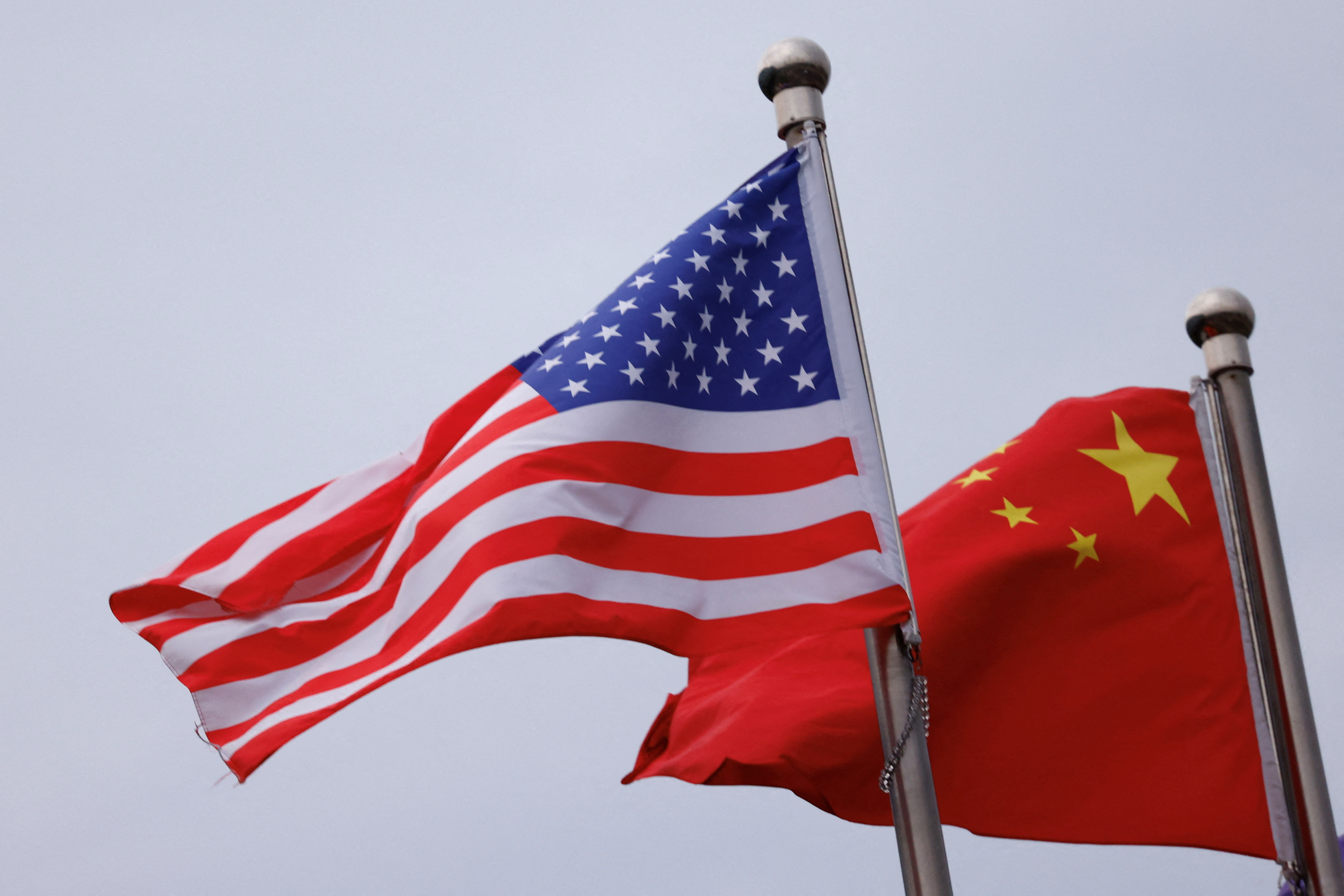US President Donald Trump has claimed victory over Europe in the US tariffs war but acknowledged a "cost" to his surging trade offensive against superpower rival China as markets plunged again.
Trump sought a victory lap at a White House cabinet meeting on Thursday, saying the European Union had backed off from imposing retaliatory tariffs because of his tough stance on China.
"They were very smart. They were ready to announce retaliation. And then they heard about what we did with respect to China... and they said, you know, 'We're going to hold back a little bit,'" he said.
Trump acknowledged "a transition cost and transition problems," but dismissed global market turmoil. "In the end it's going to be a beautiful thing."
Trump added he would "love" to strike a deal with China.
"We'll see what happens with China. We would love to be able to work a deal," Trump told reporters. "They've really taken advantage of our country for a long period of time. They've ripped us off beyond anybody."
Treasury Secretary Scott Bessent was upbeat, even as Wall Street encountered dramatic turbulence, the Nasdaq briefly dropping more than six percent.
"I don't see anything unusual today," Bessent told reporters, touting better than expected US inflation numbers and other economic indicators.

Market loss
Thursday's market losses followed giddy gains on Wednesday in the aftermath of a stunning Trump climbdown, where he maintained a 10 percent blanket tariff on most countries but paused plans for tariffs of 20 percent on the EU and even higher levies on multiple other trade partners.
The dialing back of the planned global trade war left most of the focus on China, the world's number two economy after the United States.
The White House on Thursday clarified that levies on Chinese imports are now at a staggering total of 145 percent — not the previously reported 125 percent.
This was because the latest tariff hike comes on top of a 20 percent tariff already imposed earlier. China has retaliated with levies of 84 percent on US imports.
Trump says he wants to use tariffs to reorder the world economy by forcing manufacturers to base themselves in the United States and for other countries to decrease barriers to US goods.
Howard Lutnick, his commerce secretary, was bullish, posting on social media on Thursday that "the Golden Age is coming. We are committed to protecting our interests, engaging in global negotiations and exploding our economy."
Amid questions over how far Trump is ready to push, the European Union welcomed the US president's partial row-back on his original threat to impose 20 percent tariffs against the bloc.
The 27-nation grouping responded with its own olive branch, suspending for 90 days tariffs on 20 billion euros' worth of US goods that had been greenlit in retaliation to duties on steel and aluminum.
"We want to give negotiations a chance," EU chief Ursula von der Leyen said in a statement.
She warned, however, that "if negotiations are not satisfactory, our countermeasures will kick in" and that all options remain on the table.
90-day pause
Trump likewise warned that the partial thaw could return to deep freeze after a 90-day truce period.
"If we can't make the deal we want to make... then we'd go back to where we were," he said.
Canadian Prime Minister Mark Carney called Trump's reversal a "welcome reprieve" and said Ottawa would begin negotiations with Washington on a new economic deal after elections on April 28.
Vietnam said it had agreed with the United States to start trade talks, while Pakistan is sending a delegation to Washington.
In its latest measure, Beijing announced it would reduce the number of Hollywood films imported, but said it remained ready for dialogue.
"We hope the US will meet China halfway, and, based on the principles of mutual respect, peaceful coexistence and win-win cooperation, properly resolve differences through dialogue and consultation," Commerce Ministry spokeswoman He Yongqian said.
Trump brushed off Beijing's clampdown on US films, saying, "I think I've heard of worse things."



















